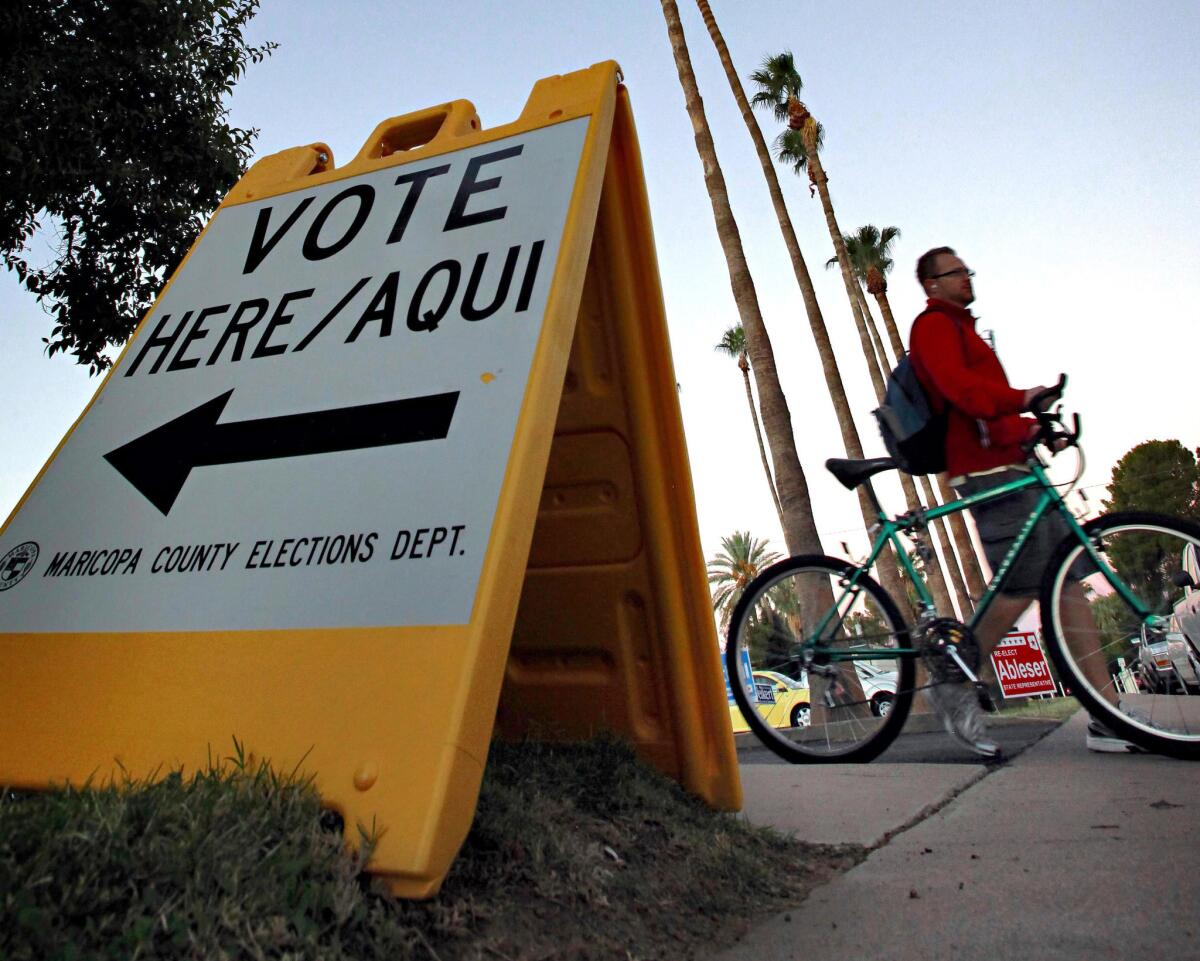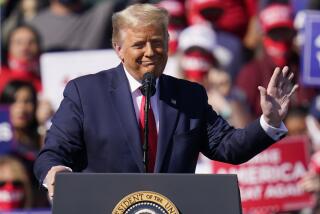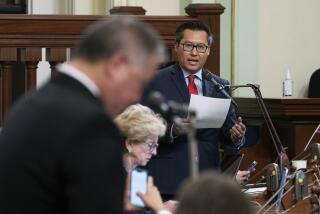Arizona’s ballot rules overturned on grounds they discriminate against minority voters

A divided federal appeals court Monday overturned election rules in Arizona that the court said discriminated against Latino, African American and Native American voters.
Ruling in favor of a challenge brought by the Democratic National Committee, the U.S. 9th Circuit Court of Appeals struck down an Arizona requirement that ballots cast in the wrong precinct must be discarded and a state law that made it a crime for someone to deliver another person’s ballot to a precinct.
“For over a century, Arizona has repeatedly targeted its American Indian, Hispanic, and African American citizens, limiting or eliminating their ability to vote and to participate in the political process,” Judge William A. Fletcher, a Clinton appointee, wrote for the majority.
The court’s decision, divided 7 to 4 along party lines, overturned a ruling by a district judge and a divided decision by a three-judge panel.
The 9th Circuit cited “uncontested evidence” that minority voters cast ballots outside their designated precincts at twice the rate of white voters, in part because they are less likely to have transportation and more likely to work multiple jobs.
The court also struck down a 2016 state law making it illegal for a third party to collect and deliver someone else’s valid ballot. The court cited evidence that prior to the law, a “large and disproportionate” number of minority voters relied on others to deliver their ballots and that the law was long pushed by Republicans and enacted after a “racially charged campaign.”
Both rules, the majority said, violated the federal Voting Rights Act.
The four Republican appointees on the en banc panel joined two dissents, one written by Judge Diarmuid F. O’Scannlain. The Reagan appointee said that Arizona was free to pass requirements to deter voter fraud even without any evidence that it existed.
“Because no evidence of actual voter fraud is required to justify an anti-fraud prophylactic measure, the majority’s reasoning quickly collapses,” O’Scannlain said.
In the second dissent, Judge Jay S. Bybee wrote that Arizona’s rule against counting ballots cast in the wrong precinct “gives voters an incentive to figure out where their polling place is” while the majority’s “preferred rule” gives “voters an incentive to vote wherever it is convenient.” Bybee was appointed by President George W. Bush.
The decision can be appealed to the U.S. Supreme Court.
More to Read
Start your day right
Sign up for Essential California for news, features and recommendations from the L.A. Times and beyond in your inbox six days a week.
You may occasionally receive promotional content from the Los Angeles Times.







